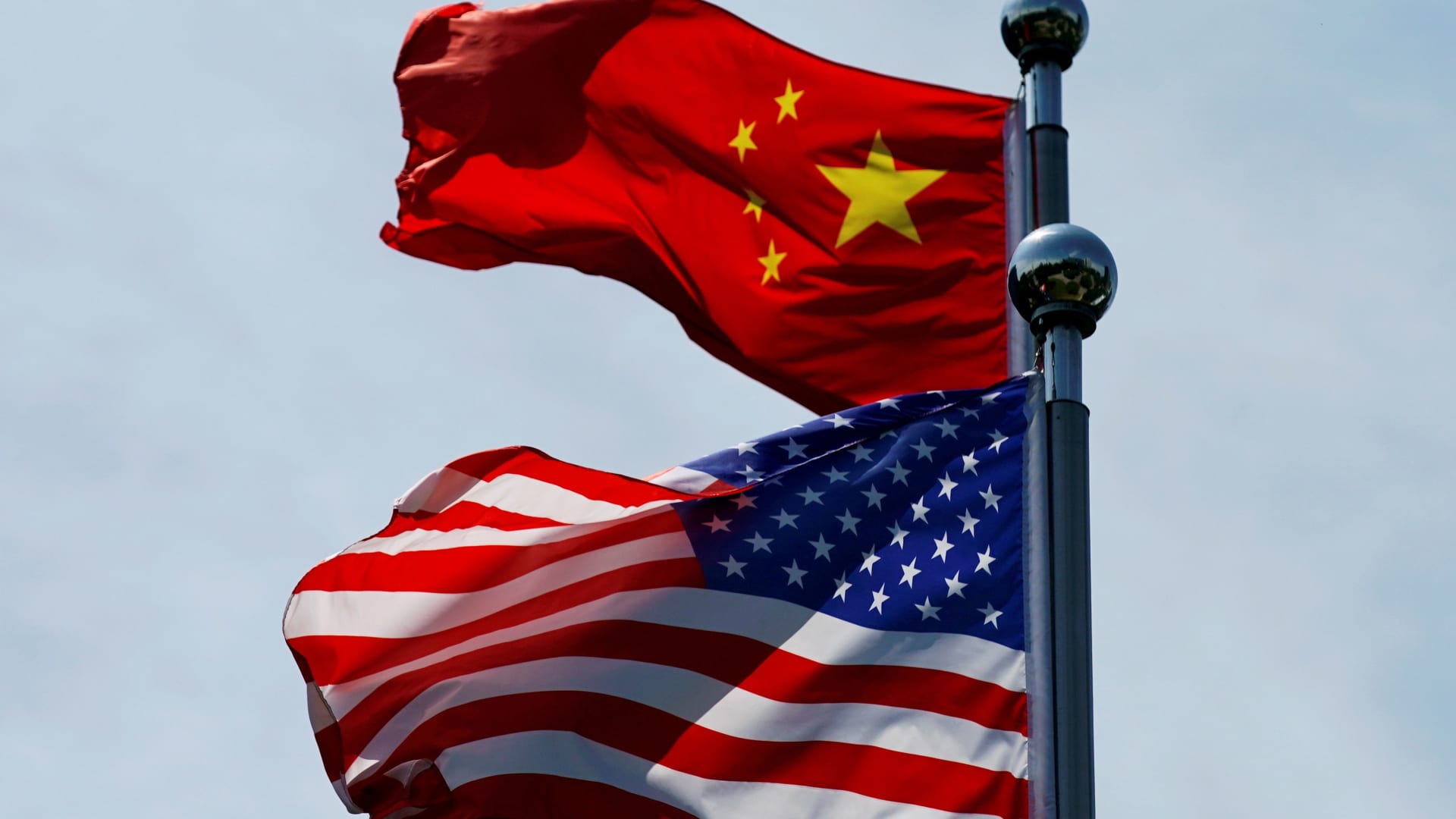Aly Song | Reuters
BEIJING — China’s Ministry of Commerce said Tuesday it was launching a probe into Calvin Klein-parent PVH Group over alleged business disruptions around its Xinjiang supply chain. Chinese and U.S. flags flutter near The Bund, before U.S. trade delegation meet their Chinese counterparts for talks in Shanghai, China July 30, 2019.
The ministry said the investigation is part of its “unreliable entities” list mechanism. Launched in 2019 shortly after the U.S. blacklisted Huawei, the list is China’s version of the U.S. Commerce Department’s entity list that restricts named companies from accessing items originating in the U.S.
The U.S. Commerce Department on Monday announced plans to ban the import or sale of cars with specific hardware or software linked to China or Russia.
China’s Commerce Ministry on Tuesday did not state why it was probing PVH now, but said the U.S. retail group had 30 days to respond. U.S. defense companies that previously landed on the “unreliable entities” list are barred from China-related imports or exports.
The Chinese probe alleges PVH “targeted Xinjiang suppliers in violation of the principles of normal market transactions, with disruptions to normal transactions with Chinese businesses, individuals and other people, along with other discriminatory measures,” according to a CNBC translation of the Chinese text.
PVH did not immediately respond to a CNBC request for comment outside of U.S. business hours.
The group, which also owns Tommy Hilfiger, is one of several foreign retail companies that have faced scrutiny in China over efforts to distance themselves from alleged forced labor in China’s Xinjiang region.
In a July 2022 corporate responsibility report, PVH said that Xinjiang is one of the regions where no direct or indirect sourcing is permitted.
International revenue for Calvin Klein and Tommy Hilfiger fell by 4.3% year-on-year to $1.38 billion in the quarter ended Aug. 4, dragged down by a “challenging consumer environment in Asia Pacific, particularly in China and Australia,” PVH said in an earnings release.
That overseas revenue accounted for more than half PVH’s total revenue of $2.07 billion for the quarter.
Xinjiang is home to the Uyghur Muslims, who have been identified by the United Nations, United States, United Kingdom and others as a repressed ethnic group. China has repeatedly denied allegations of forced labor and other abuses in Xinjiang. The government says that facilities there that the U.S., U.K., Canada and human rights groups have characterized as internment camps are actually vocational training centers.
China’s investigation into Calvin Klein owner PVH Corp. over “interference” in Xinjiang reflects the growing complexity and sensitivity of the relationship between business, human rights, and government policy. Here are some thoughts on the situation:
1. **Ethics and Business Challenges**: Companies operating internationally often face ethical challenges, especially in the context of human rights. This investigation highlights the dilemma that major brands face when weighing their reputation in the global marketplace versus compliance with local regulations.
2. **Reputational Risk**: Brands involved in human rights issues in Xinjiang can face significant reputational risk. Consumers are increasingly aware of the social and environmental impacts of the products they buy, and many prefer to support companies with a strong commitment to ethics.
3. **Geopolitical Impact**: This investigation also reflects how geopolitics can impact business. Tensions between countries, especially around human rights and trade, can have unforeseen consequences for companies. This highlights the need for better risk mitigation strategies in conducting international business.
4. **Government Regulations and Actions**: Government actions to investigate certain companies can impact investment decisions and future operations. Companies need to be more proactive in understanding and complying with local policies to avoid legal and reputational issues.
5. **The Importance of Transparency**: Companies need to increase transparency in their supply chains and take steps to ensure that they are not engaging in harmful practices. This includes conducting independent audits and ensuring compliance with human rights standards.
6. **Impact on the Global Economy**: This situation could impact trade relations between China and other countries. If Western countries continue to pressure China on human rights issues, it could impact the global economy, including investment and trade flows.
Overall, the investigation into PVH Corp. is a reminder that companies must adapt to today’s complex social and political realities. They must develop a responsible and sustainable approach to operating in the global marketplace.
—CNBC’s Sonia Heng contributed to this report.

